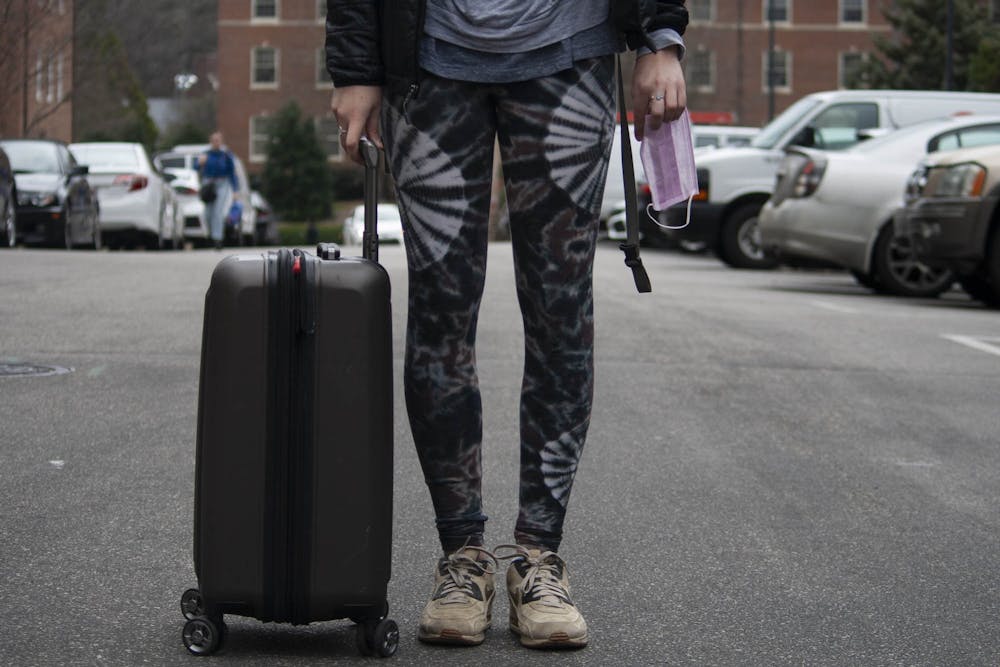Munoz said she woke up at 3 a.m. on Thursday to frantic calls from her family in the U.S. advising her to buy a flight home. She was unaware at the time that the travel restrictions did not apply to American citizens.
“Immediately, I was just like, ‘Why have I not heard from UNC?’” Munoz said. “At the very least if there was no plan, them just saying that we know of the situation.”
Studying abroad in Salamanca, Spain, sophomore public policy major April Turner felt the same way.
She said she was disappointed by the lack of information relayed to the students abroad from UNC after the travel restrictions were initially imposed, including the list of 13 airports that Americans could fly into from Europe.
“I expected much more information after travel ban had taken place,” Turner said. “I was one of the last five people that had heard from their universities. It was a little bit unnerving because I didn’t know what to do.”
Munoz said she decided to wait until UNC sent an official message about the status of her program before buying a flight home. She said the message arrived in her inbox later that night, more than 24 hours after the state of emergency was initially declared in Hungary.
That message, sent at about 5 p.m. EST to students by Barbara Stephenson, vice provost for Global Affairs and chief global officer, canceled all study abroad programs taking place in the 29 European countries designated as Level 3 by the U.S. Centers for Disease Control and Prevention.
"The University is communicating with affected students about their return to the United States and their academic continuation options," Stephenson said in the email.
Turner said Campus Health also sent out a survey for abroad students to fill out within 24 hours of arriving home.
“The survey asked about symptoms,” Turner said. “In seven days they’ll be following up again to check on how I’m doing and at the end of 14 days they will check in again. So at the least they are making sure we are self-quarantining and highly recommending that we do so.”
The email said students should contact Campus Health or email travelcheckin@unc.edu with questions about the quarantine.
"We understand that this may be a stressful time for you and would like to provide any assistance we can after your return," the email said.
To get the day's news and headlines in your inbox each morning, sign up for our email newsletters.
Both Munoz and Turner said they plan on completing their coursework remotely online.
The Study Abroad Office is inquiring about the possibility of refunding program costs, said Heather Ward, the associate dean for Study Abroad and International Exchanges, in an email to study abroad students in Europe last Thursday.But, she said it is unlikely that students will be reimbursed at this stage of the semester.
Turner said she has inquired with her study abroad advisor about the possibility of being reimbursed for the flight she had to take to return home.
She also said she would like to be reimbursed for housing costs specific to her program.
“For host families, they get paid monthly,” Turner said. “So it doesn’t make sense for us to not be reimbursed for money on the table that they haven’t received. We understand it’s income that they depend on, but it's also not fair to us to be paying for something we’re not receiving."
Despite the unusual semester she's had, Munoz said she does not regret her decision to have studied abroad this semester.
“I have had so many more happy and positive memories than I had negative ones,” Munoz said. “I wouldn’t go back and change it.”
Though Turner agreed, she said she thinks it’s important to stress the significance of the context of her experience.
“We are living through the second pandemic of America’s history, which is wild to me,” Turner said. “I think it’s just crazy that people are not taking it seriously. It seems like they’re taking this as a joke and I think that’s going to be our pitfall.”
@evelyaforte
university@dailytarheel.com




